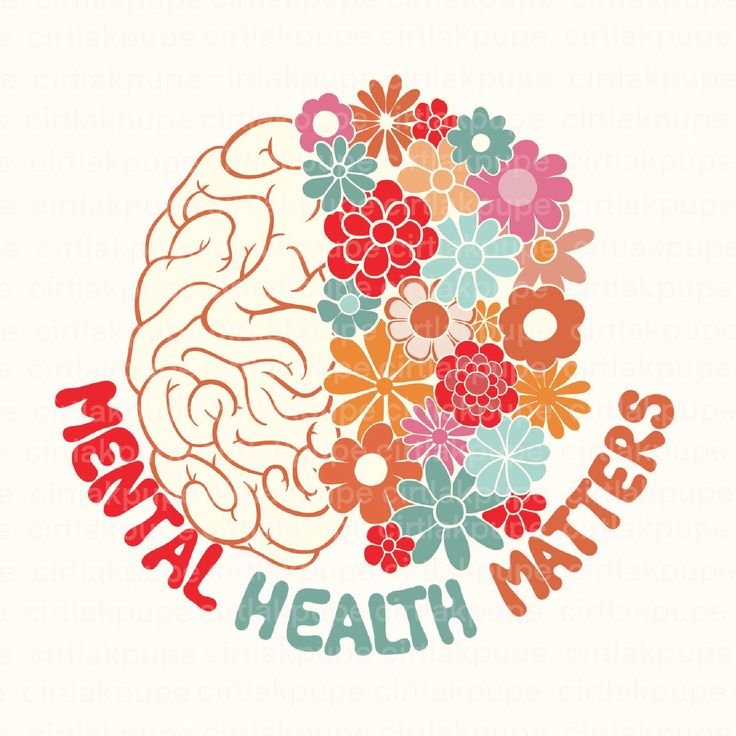
What is Mental Health?
Mental health refers to how we think, feel, and act. For teenagers, it influences everything from academic performance to relationships and even how they perceive themselves. It’s not just the absence of mental illness, but a state of emotional, psychological, and social well-being. Mental health impacts how teens cope with stress, make decisions, and handle everyday challenges. Healthy mental well-being allows them to thrive socially and emotionally while building resilience against the pressures of life.
Why Mental Health Matters for Teenagers
The teenage years are filled with unique challenges that can impact mental health. During this time, teens face academic pressures, peer influences, evolving family dynamics, and a growing sense of identity. It’s a period when mental health issues can arise or worsen, and it’s crucial to understand why mental health is so important for teenagers.
Emotional Regulation: Teenagers are learning to manage a range of intense emotions—anger, joy, sadness, and anxiety. Mental health plays a significant role in emotional regulation. Teens with healthy mental health are more likely to respond to their emotions in a balanced way. However, when mental health issues arise, it can be difficult to manage these feelings, leading to mood swings, impulsive actions, and difficulties in interpersonal relationships.
Building Resilience: The teenage years are often marked by challenges, both big and small. Whether it’s dealing with school stress, friendships, or family problems, resilience is key to navigating these difficulties. Good mental health equips teens with the ability to bounce back from setbacks, face challenges head-on, and learn from their experiences.
Identity Development: Teenagers are in the process of forming their identities, discovering who they are and where they fit in the world. Mental health plays a pivotal role in this journey. A teen with positive mental health is more likely to have a stable sense of self-worth, confidence, and autonomy. In contrast, mental health struggles can cause teens to feel uncertain about who they are, leading to confusion, insecurity, and identity-related challenges.
Social Relationships: Friendships and relationships become increasingly important during adolescence. However, poor mental health can make it difficult to form and maintain healthy relationships. Teens struggling with mental health issues may withdraw socially, feel misunderstood, or experience conflict with peers. On the other hand, strong mental health allows teens to develop healthier, more meaningful relationships based on trust, empathy, and communication.
Academic Performance: Mental health issues can have a direct impact on a teenager’s academic success. Conditions like anxiety, depression, and stress can make it difficult to focus, concentrate, and complete assignments. Students may experience lower grades, lack of motivation, and even a disconnection from school altogether. By addressing mental health concerns, teens can improve their ability to perform academically and engage fully in their educational experiences.
Common Mental Health Challenges for Teenagers
While all teenagers experience some level of stress and emotional turmoil, it’s important to recognize when these feelings become overwhelming or persistent. Several mental health issues commonly affect teens, including:
Anxiety: Anxiety is one of the most prevalent mental health concerns among teens. It can manifest as constant worry, nervousness, or even physical symptoms like headaches and stomachaches. Teens may experience anxiety around school performance, social interactions, or future plans.
Depression: Teenagers can struggle with feelings of sadness, hopelessness, and isolation, which may lead to depression. Depressive symptoms may include loss of interest in activities, changes in appetite or sleep patterns, and thoughts of self-harm.
Stress: The pressures of school, extracurricular activities, and family expectations can lead to chronic stress. While some stress is normal, prolonged periods of stress can negatively impact both mental and physical health.
Self-Esteem and Body Image Issues: Adolescents are particularly vulnerable to struggles with body image, fueled by social media and societal pressures. Negative thoughts about their appearance can lead to low self-esteem, which in turn can affect their overall mental health.
Substance Use: Some teens may turn to substances like alcohol or drugs as a way to cope with their emotions. This can develop into a dangerous cycle of substance abuse, further harming their mental and physical health.
Recognizing the Signs and Seeking Help
The first step in supporting a teen’s mental health is recognizing when something is wrong. While mood swings are common during adolescence, there are certain signs that may indicate a deeper mental health issue:
- Persistent feelings of sadness or hopelessness
- Withdrawal from friends or activities
- Extreme changes in behavior or personality
- Difficulty concentrating or completing tasks
- Irritability or mood swings
- Physical complaints like headaches or stomachaches without a medical cause
If you notice these signs, it’s essential to encourage open communication and offer support. Talking to a trusted adult or mental health professional can make a significant difference. Early intervention is key to preventing mental health issues from worsening.
How Teens Can Prioritize Mental Health
Practice Self-Care: Teens should make self-care a priority. This includes regular physical activity, eating a balanced diet, getting enough sleep, and engaging in activities they enjoy.
Stay Connected: Maintaining strong relationships with friends, family, or mentors is vital for emotional support. Teens should feel encouraged to reach out when they’re struggling.
Develop Healthy Coping Mechanisms: Instead of turning to substances or withdrawing, teens should explore healthy ways to cope with stress, such as journaling, meditation, or creative outlets like art or music.
Seek Professional Help: If a teen is struggling with their mental health, seeking help from a counselor, therapist, or psychologist can be life-changing. Therapy provides a safe space to explore thoughts and feelings and develop strategies for managing mental health.
Conclusion
Mental health is just as important for teenagers as physical health. It affects how they navigate the complexities of adolescence, from academic challenges to social interactions and personal development. By prioritizing mental well-being, seeking support when necessary, and learning healthy coping strategies, teenagers can build a strong foundation for their future. It’s time to normalize conversations about mental health and ensure that every teenager has access to the resources and support they need to thrive emotionally, mentally, and socially
